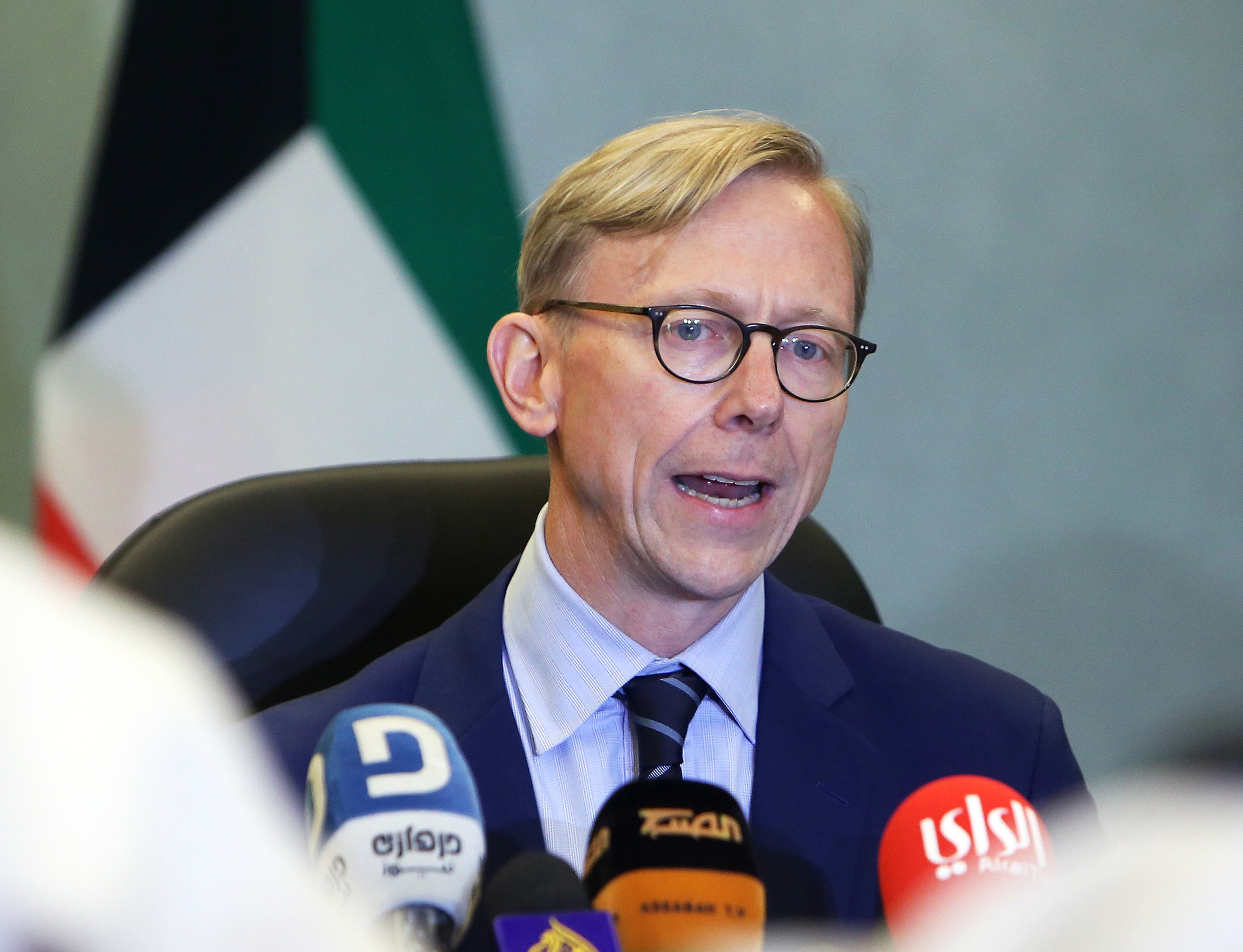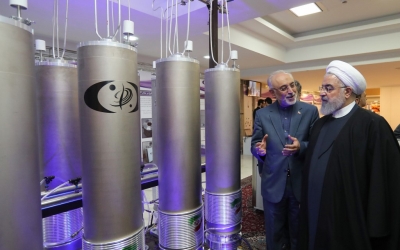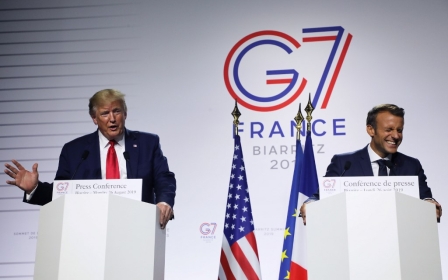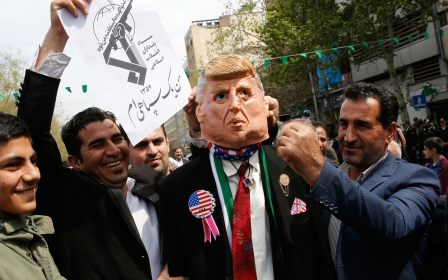US imposes new sanctions on Iran, offers reward for tips on oil shipping network

The United States imposed a new set of economic sanctions on a network it says helps Iran skirt restrictions on its ability to export oil, a move that comes after weeks of heightened tensions over the movements of Iranian oil tankers in the Gulf.
The US Treasury Department on Wednesday accused the Islamic Revolutionary Guard Corps' Quds Force (IRGC-QF), Iran's elite military unit tasked with missions abroad, of moving hundreds of millions of dollars in oil to Syrian President Bashar al-Assad's government and its ally, Lebanese group Hezbollah.
The IRGC-QF has said the oil originated in Iraq in order to get around restrictions on its sale to Syria, the department said in a statement.
The Treasury Department imposed sanctions on 16 entities - individuals and vessels - it said were part of this oil-shipping network.
The designation makes it illegal for US citizens to do business with the sanctioned groups, and freezes the groups' assets in the US.
New MEE newsletter: Jerusalem Dispatch
Sign up to get the latest insights and analysis on Israel-Palestine, alongside Turkey Unpacked and other MEE newsletters
"Our actions over the last two weeks should serve as a strong warning to anyone considering facilitating the [Quds] Force's oil sales that there will be swift consequences," Treasury Secretary Steven Mnuchin said in the statement.
$15m reward offered
The US State Department also announced on Wednesday that it was seeking information on the IRGC, and the Quds Force, that helps lead to the disruption of the groups' oil sales and financial tools.
The department offered up to $15m for such information through its Rewards for Justice Program.
"Deception is at the heart of the Quds Force shipping network," Brian Hook, the US special representative for Iran, said in a briefing.
The announcement marks the first time the US has sought information on a governmental organisation through this programme. Washington designated the IRGC a "foreign terrorist organisation" in April.
'Our actions over the last two weeks should serve as a strong warning to anyone considering facilitating the Quds Force's oil sales that there will be swift consequences'
- Steven Mnuchin, US Treasury Secretary
The new round of sanctions comes just one day after the US sanctioned Iran's space agencies.
Washington has undertaken aggressive actions against Iran over the past two weeks, targeting networks tied to Iran's missile programme, oil tankers and a Lebanese bank it accuses of having ties to Tehran.
Relations between Tehran and Washington have soured since the US backed out of the Iran nuclear deal last year and reimposed sanctions on the country.
The nuclear agreement, known formally as the Joint Comprehensive Plan of Action (JCPOA), was signed in 2015 by Iran, the US, and five other world powers.
Under the deal, international sanctions against Iran were lifted in exchange for the country curbing its nuclear programme.
The leaders of several European countries remain committed to the deal, but they have struggled to improve relations between Washington and Tehran since the US left the agreement.
Committed to 'maximum pressure'
France announced on Tuesday that it hoped to offer $15b in credit lines to Iran on the condition that it maintains its commitments under the deal, but such a proposal hinges on US approval.
So far, the US has not said directly whether it would issue the waivers France would need to issue the credit lines to Tehran.
On Wednesday, Hook told reporters that the US is committed to its "maximum pressure" campaign.
"We can't make it any more clear that we are committed to this campaign of maximum pressure and we are not looking to grant any exceptions or waivers," Hook said.
"We made it very clear that when we were done with our SREs - these are the oil waivers - when those were gone, those were gone. And so we've ended those and we're very focused on our maximum pressure campaign."
Meanwhile, Iranian President Hassan Rouhani said on Wednesday that Tehran would give European countries two months to save the nuclear deal.
But Rouhani threatened to take further measures to scale back Iran's commitments under the agreement by 6 September unless France and the other European signatories do more to protect the country from the impact of the US penalties, Reuters reported.
Middle East Eye delivers independent and unrivalled coverage and analysis of the Middle East, North Africa and beyond. To learn more about republishing this content and the associated fees, please fill out this form. More about MEE can be found here.





